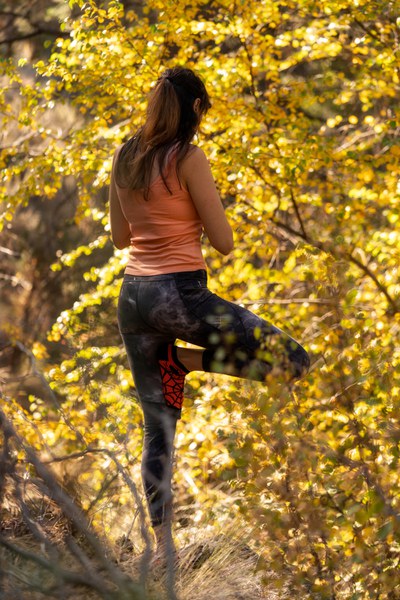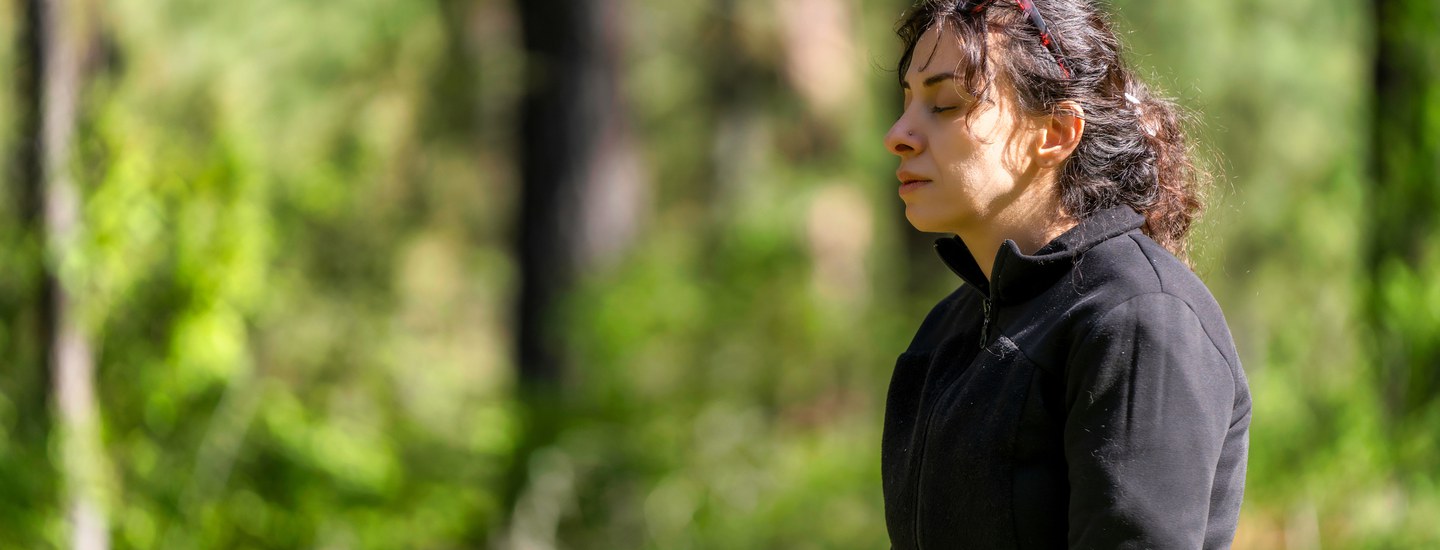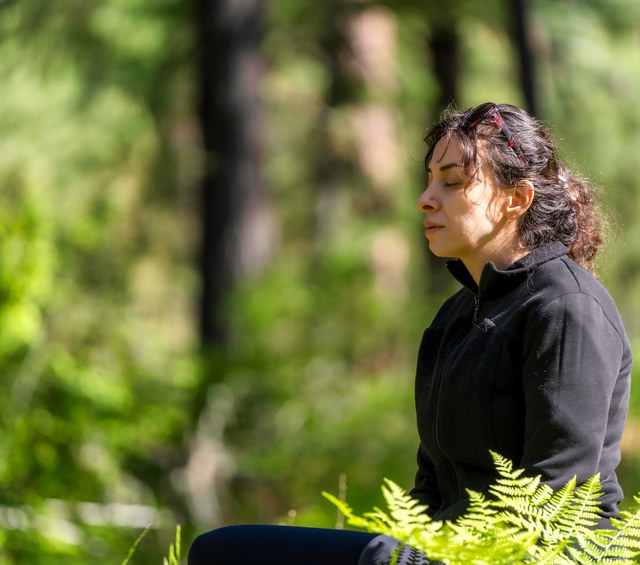Regardless of the specifics, we all have a lot on our plates and on our minds these days, and that can add up to a lot of stress! We don’t need to be reminded of the long list of negative health impacts too much stress can have. But it can be helpful to understand how stress works, so we can make intentional choices about how to address it.
The Stress Cycle begins when something shakes us out of our safe and comfortable state— think, facing down a predatory animal, like the proverbial lion on the savannah. This causes a flood of chemicals in our bodies that builds up a lot of energy and alerts our brains that “Something needs to be done!” That something is one of a few responses you may be familiar with: fight, flight, freeze, or fawn. We do whatever is needed to neutralize or get away from the danger. Finally, when we’ve survived the danger, we return to the safety and comfort of home, to have our story heard and our fears recognized, and to celebrate and reconnect with our community. It’s important to complete that cycle or stress can build up, making us more prone to feel even more stressed again in the future.
Where we can get stuck in our modern world is that we’re usually not being hunted by wild animals, but our brains react to events on the news or disagreements with a loved one as if it was the same thing. That flood of “danger” chemicals still builds up a lot of energy that needs someplace to go.
Getting outdoors can really help with this!
Take a slow walk.
Hiking, jogging, biking, or yoga outside can help move those “danger” chemicals through the body, signaling to your brain that you’ve “outrun” that “lion.” It doesn’t have to be a serious workout either. Some research has shown that more intense workouts can actually keep emotions activated and running high, while slow, gentle, intentional movement restores a feeling of safety and calm. This helps the whole system—mind and body both!—to slow down while still completing the stress cycle. Benefits of a stroll outdoors can be felt in as little as 20 minutes!

Use all your senses.
Visually scanning the environment and seeing that there’s no physical threat can also soothe your mind and body. Feeling your weight press into the ground through your feet is actually called “grounding,” and can quickly restore a sense of stability and calm. Breathing in the fresh air of a forest has been shown not only to reduce stress, but to boost immunity as well! This is because, included with all that fresh oxygen produced by trees are compounds known as phytoncides, which trees produce to protect themselves from injury or infection. When breathed in, these plant compounds cause a similar effect in our own bodies.
Invite others—or not!
Time in nature has also been linked to more prosocial behavior, which means acting in more generous and considerate ways. Additionally, being in natural spaces increases a sense of awe and connection to something bigger than us, which leads to a more receptive and reflective state of mind. So, if it’s other people who have you stressed, maybe invite them out for a walk, or if you go solo, you can perhaps take a different perspective and be reminded that we are all truly in this together!
Give it a rest!
Last but not least, time outdoors has been associated with increased focus and more creative problem-solving. Being present, taking in the scenery, and enjoying your surroundings can allow your mind to rest and recharge, making it easier to see connections and solutions. In our hectic, always-on, 24/7 lives, those are things we could all use more of!
We sometimes forget that we humans are part of nature. But healthy lands and waters make for healthier lives for us too! If you’re feeling stressed this week, visit the trails at one of our Community Preserves or join us for a guided walk or tour.
Learn more:
Sources:
- Effects of Forest Bathing on Human Immune Function, Environmental Health and Preventive Medicine
- Why Jogging Could Be Making You Angrier, The Times
- Stress Cycles: What They Are and How to Manage Them, Teaching Commons, Stanford University
- How Nature Can Make Your Kinder, Happier, and More Creative, Greater Good Magazine, UC Berkeley
- Nature promotes self-transcendence and prosocial behavior, Journal of Environmental Psychology


